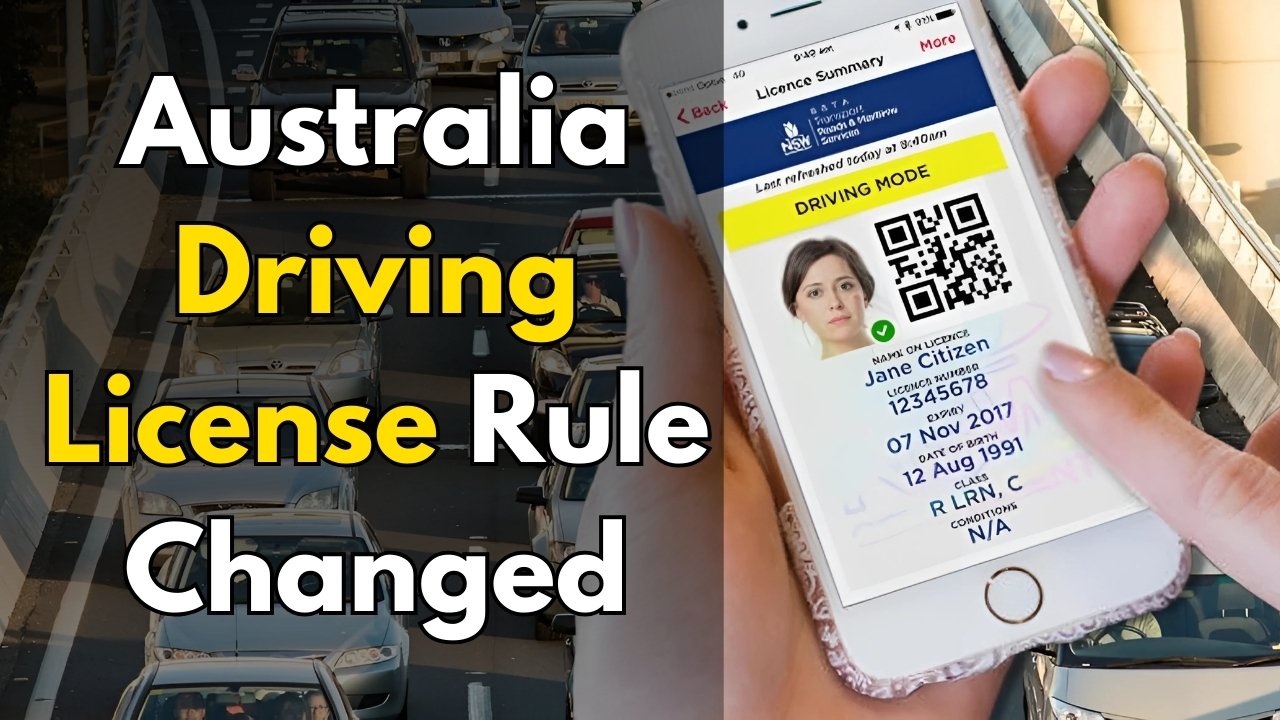Driving License Rule : Australian states have been implementing stricter medical assessment requirements for driving license renewals, particularly affecting drivers aged 75 and above. The changes require annual medical certificates from general practitioners confirming fitness to drive, with some states now mandating practical driving assessments for license holders reaching certain age milestones. These modifications aim to balance road safety concerns with maintaining independence for senior citizens, though the implementation varies significantly across different states and territories.
In New South Wales, drivers aged 75 and over must now undergo yearly medical reviews, while those reaching 85 face additional practical driving tests every two years. Victoria takes a different approach, requiring medical assessments only when specific conditions are reported or observed, but the scrutiny has intensified with doctors facing increased responsibility for reporting patients who may pose driving risks. Queensland has introduced a medical certificate requirement at 75, with the option of restricting licenses to familiar local areas rather than complete cancellation for those showing minor impairments.
The medical assessments examine vision, cognitive function, physical mobility, and reaction times. Conditions like dementia, epilepsy, diabetes with complications, and certain heart conditions now trigger automatic reviews that could result in license restrictions or cancellations. Healthcare providers must report patients with conditions affecting driving ability, creating a more comprehensive monitoring system than previously existed.
Interstate License Recognition Changes Create Confusion
Recent modifications to interstate license recognition have caught many drivers unaware, particularly those who’ve relocated between states without updating their licenses within required timeframes. Most states now enforce strict three-month windows for new residents to transfer their licenses, with automatic cancellation of interstate licenses for those who fail to comply. This crackdown affects thousands of Australians who’ve moved for work or lifestyle reasons, especially during the post-pandemic period of increased interstate migration.

The enforcement has become more sophisticated with states sharing driver information through integrated databases that flag individuals holding multiple licenses or those who should have transferred their credentials. Drivers caught using interstate licenses beyond grace periods face fines ranging from $200 to $600, with some states treating it as unlicensed driving, carrying more severe penalties. The rules particularly impact grey nomads and seasonal workers who maintain residences in multiple states, forcing them to choose a primary residence for licensing purposes.
Digital verification systems now instantly check license validity across state borders during police stops, eliminating the previous informal tolerance for interstate licenses. This technological advancement means drivers can no longer claim ignorance about transfer requirements, as the systems track when individuals establish residency through various government interactions like enrolling children in schools or registering to vote.
$330 New Child Tax Credit payment are release on this date – Check documentation
Driving License Rule High-Risk Drivers Face Immediate Cancellations
Authorities have expanded immediate cancellation powers for high-risk driving behaviors, with new categories triggering automatic license suspension pending formal hearings. Excessive speeding over 45 kilometers per hour above limits now results in immediate roadside suspensions in most states, with police officers able to confiscate licenses on the spot. Drug driving offenses have seen particularly harsh treatment, with presence of illegal substances resulting in automatic minimum six-month cancellations, regardless of impairment levels.
The definition of high-risk drivers has broadened to include those accumulating multiple minor offenses within shortened timeframes. Drivers receiving two speeding fines within twelve months for speeds exceeding 30 kilometers per hour over limits now face automatic reviews that could result in cancellations. Mobile phone offenses have been elevated to high-risk categories, with second offenses within five years triggering license reviews and potential cancellations lasting three to six months.
Young drivers on provisional licenses face even stricter measures, with single serious offenses potentially resulting in requirements to restart entire graduated licensing processes. P-platers caught with any alcohol in their systems face immediate cancellations and extended provisional periods once licenses are reinstated.
